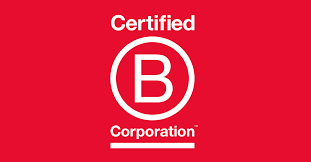WoodsCamp Technologies seems like a natural candidate to become a B Corp, but its CEO isn’t rushing to gain certification.
The Mahone Bay, N.S., startup has developed an online tool to help manage private woodlots, identifying the inventory of trees and helping owners and harvesters decide which can be sustainably and profitably cut down. It promises to enable sustainable forestry and prevent clearcutting.
WoodsCamp is a textbook triple-bottom-line company – that is, a business that wants to enhance people and the planet as well as profits. It’s a great fit to become a B Corporation, the global movement to certify businesses that strive to benefit the planet and people as well as their shareholders. But WoodsCamp’s co-founders have decided not to seek B Corp certification, at least not yet.
In fact, most tech startups don’t. As of the end of 2016, Entrevestor was tracking 414 Atlantic Canadian startups--we define startups not as new companies but as locally owned companies commercializing innovation. Only one, Dadavan Systems of Waverly, N.S., is a certified B Corp. It begs the question: should startups seek B Corp certification? Most startups argue their product creates societal or environmental benefits, and the B Corp ethos overlaps nicely with the change-the-world mindset so intrinsic to the startup world. But founders face the question of whether it’s worth the time and expense to gain B Corp certification.
WoodsCamp CEO Alastair Jarvis, for example, believes it would be premature to go through the certification process while he and Co-Founder Will Martin are in the fluid process of determining what their business will become.
“As a startup, we are searching for a business model that works and we don’t know what that business model will be yet – we have hypotheses and we’re testing them,” said Jarvis in an interview.
“For us, certification becomes relevant once you have found a repeatable and scalable business model. . . If it’s important to you, then certifying that business model as a B Corp makes sense. But all the time you’re searching, it doesn’t make sense to seek certification as a B Corp.”
It’s a view that’s commonly held but not unanimous in the startup world, and even sceptics readily admit that having the official B Corp certification can help with marketing, fundraising and attracting and retaining staff.
Common Good Solutions: Growing with the Social Venture Movement
To gain certification, companies have to establish to Wayne, Penn.-based B Lab, the non-profit organization that launched the movement, that they meet certain metrics in environmental standards, transparency, diversity and philanthropy. The cost to get certified is as little as $500, and people who have done it say the time required can be manageable so long as you have the right documents at your fingertips. To retain the certification, companies have to go through the process again every two years.
Some entrepreneurs believe the benefits of certification outweigh concerns about the time and money needed.
“If they have the value set of really living to benefit the environment and society, they have absolutely nothing to lose by doing it,” said Saint John filmmaker Greg Hemmings, the CEO of Hemmings House Pictures. “My company can send the message to the outside world that we live by those values.”
Hemmings House is one of the 13 Atlantic Canadian B Corps, and Hemmings himself is an official B Corp ambassador. He lists three main reasons to seek certification.
First, it helps marketing to have an instantly recognizable B Corp logo on all marketing material that tells customers the company’s social commitment has been audited. Second, it helps attract and retain employees who want to work for companies that hold such values. And finally, it helps the owners of these companies remain true to their values, even when commercial pressures tempt them to stray. Above all, he said, a B Corp certification can’t be faked.
“I mean, there’s so much greenwashing out there . . . but when you get a really rigorous certification it proves 100 percent that you are living up to the standards that you’re telling people you’re living.”
One solution is simply for young companies to set internal directives so that they can live up to the ideals of the B Corp movement without going through the process, said Aaron H. Emory, the head of Marketing and Community Development at Propeller Brewing Co. in Halifax, and the former B Corp lead at Toronto’s MaRS Discovery District.
“You can just have the directive within your company,” he said. “It’s a good idea just because as corporations we owe it to our fellow man to do better.”










